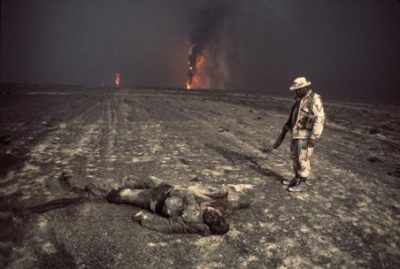Will 2019 Change the World Just Like 1979 Did?

Five geopolitically seismic events forever changed the world back in 1979, and it’s worth reminding everyone about them 40 years after the fact.
2019 will mark exactly four decades since one of the most geopolitically seismic years of the 20th century, and it’s worth reminding everyone what happened back then. Each of the forthcoming enumerated events is now well known and requires no further explanation, but simply listing them out in chronological order can hopefully imbue the reader with a sense of appreciation for how dramatically the world can change in the span of just a single year. For those who are either eager to take a trip down memory lane or just want to learn about what happened before they were born, here’s what unfolded 40 years ago in 1979:
- 11 February: The Iranian Revolution Topples The Shah And Paves The Way For The Islamic Republic
- 17 February: China Invades Vietnam During The Height Of Vietnam’s Invasion Of Cambodia
- 26 March: “Israel” And Egypt Sign The First-Ever Peace Treaty Between The “Jewish State” And Arabs
- 17 July: Pro-American Nicaraguan Leader Somoza Resigns After The Sandinista Revolution Succeeds
- 24 December: The USSR Commences Its Anti-Terrorist Intervention In Afghanistan
No one can say for certain whether 2019 will see as many geopolitically seismic events occurring as what happened back in 1979, and the prevailing trends indicate that the world is in for a rude awakening if it expects that the previous year’s developments won’t continue to powerfully shape International Relations in the coming 12 months. 2019 might not bring about as much dramatic change in Latin America, the Mideast, South Asia, and Southeast Asia as 1979 did, but it’ll probably still be a year to remember when considering that the many paradigm changes that picked up pace in 2018 will probably continue to influence the New Cold War for years to come.
*
Note to readers: please click the share buttons above. Forward this article to your email lists. Crosspost on your blog site, internet forums. etc.
This article was originally published on Eurasia Future.
Andrew Korybko is an American Moscow-based political analyst specializing in the relationship between the US strategy in Afro-Eurasia, China’s One Belt One Road global vision of New Silk Road connectivity, and Hybrid Warfare. He is a frequent contributor to Global Research.
Featured image is from The Ron Paul Institute for Peace and Prosperity

